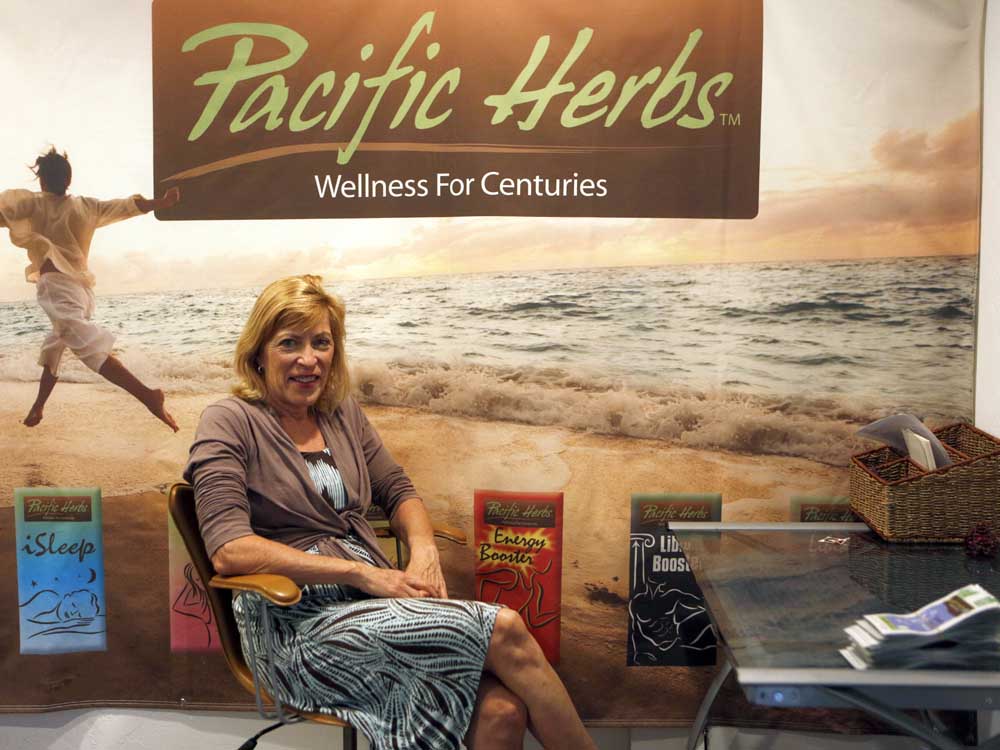Bend company makes Chinese herbal remedies
Published 12:00 am Tuesday, July 19, 2016

- Jarod Opperman / The BulletinPacific Herbs founder Cathy Margolin in her office at the companys southeast Bend location.
A small Bend company has put a new spin on traditional Chinese remedies, thanks to a partnership with one of the largest pharmaceutical companies in China.
Pacific Herbs LLC, founded by Cathy Margolin in California in 2011, packages herbal recipes that have been part of Chinese medicine for centuries, and works with TianJiang Pharmaceutical Co. Ltd. to convert them to small granules to make them more palatable to Americans.
“The formulas were written down 500 years ago, 1,000 years ago,” Margolin said. “So we take these very, very ancient formulas that we know work, and we make them very modern and very understandable and very palatable.”
Pacific Herbs officially moved to Bend in June, though the company is still moving into its warehouselike space in The Bridge in Southeast Bend.
Margolin, a board-certified acupuncturist and licensed herbalist, began brewing several Chinese herbal remedies, including one designed to alleviate menstrual cramps, during her time at Emperor’s College, School of Traditional Oriental Medicine, in Santa Monica, California.
The menstrual relief formula was one of the first recipes Margolin commercialized, along with iSleep, a sleep aid. However, she said most stores were reluctant to work with a company with just two products, so she had to scale the company more quickly than she had anticipated.
“It’s kind of a Catch-22,” Margolin said. “You can’t grow because you don’t have the money, but you can’t get into stores unless you grow.”
In June, Pacific Herbs was named one of 10 recipients for the Natural Launchpad program by Burt’s Bees, earning a $10,000 grant and a day of training at the company’s North Carolina headquarters.
Pacific Herbs currently has 12 products, which incorporate more than 40 ingredients used in Chinese medicinal recipes. The herbs range from commonly used plants like ginseng and mint, to dong quai, a Chinese root that improves blood flow.
The National Center for Complementary and Integrative Health, a federal agency that focuses on various types of alternative health care practices, lists traditional Chinese medicine, which includes practices such as tai chi as well as herbal remedies, as a complementary health approach, to be used in conjunction with conventional Western medicine. There have been reports of herbal products brought over from China that have been contaminated with drugs or heavy metals, though the products are still inspected by the U.S. Food and Drug Administration.
Pacific Herbs partnered with TianJiang, which calls itself the largest manufacturer of granulated Chinese medicine in the world. The herbs are cooked in stainless-steel tanks, placed in concentration tanks and dried into granules in large warehouses. Margolin said these granules can be swallowed or placed in tea, depending on the customer’s preference.
Margolin added that while Pacific Herbs sells directly to around 20 stores and to others through distributors, her largest market is alternative medicine providers, including acupuncturists.
— Reporter: 541-617-7818, shamway@bendbulletin.com
Q: What would you say to people skeptical about Chinese medicine?
A: Cathy Margolin: They need to do some research, and they need to talk to a qualified practitioner. It definitely can be sketchy, but you have to know where your health supplement is coming from and how it’s manufactured.
Q: What makes Bend a good area for a company like this?
A: It’s a healthy area to begin with. … The people here are generally health-minded, and so are we, so we think we’re a good fit.
Editor’s note: This story has been corrected. In the original version, the description of Pacific Herbs’ customers was incorrect.
The Bulletin regrets the error.






